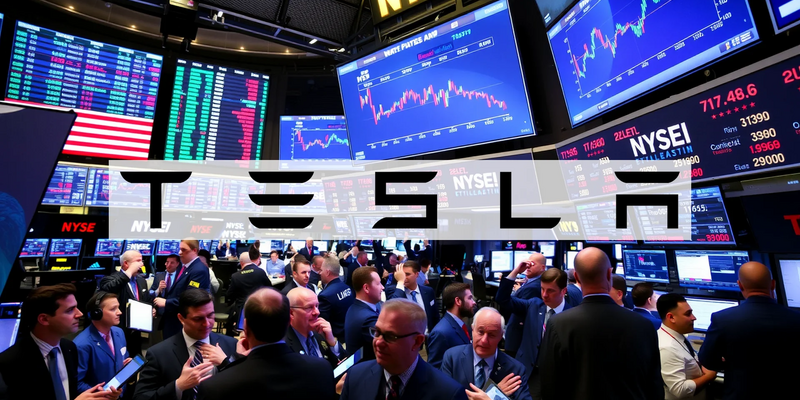Tesla’s Strategic Pivot: Betting Big on AI and Robotics
13.11.2025 - 17:01:04Tesla US88160R1014
Elon Musk is steering Tesla through a fundamental transformation, shifting the company's identity from an electric vehicle manufacturer to a comprehensive artificial intelligence and robotics enterprise. This strategic realignment comes at a crucial time, as the core auto business faces margin compression and softening demand. The central question for investors remains whether these ambitious technological ventures can revitalize the company's financial performance.
A cornerstone of Tesla's new direction involves developing proprietary high-performance artificial intelligence processors. The company's ambitious roadmap targets mass production of its "AI5" chip by 2027, a move designed to reduce dependence on external semiconductor partners like TSMC.
Tesla has already secured Samsung Electronics as a key foundry partner and is reportedly in discussions with Intel about potential collaboration. Looking further ahead, the company envisions establishing its own "Tera Fab" manufacturing facility. This long-term strategy would enable Tesla to fully supply its AI chip requirements for both its Full Self-Driving technology and the Optimus humanoid robot program internally.
Humanoid Robotics Transition from Prototype to Production
Tesla's Optimus humanoid robot has officially progressed beyond the research and development phase, entering initial production. A preliminary assembly line is already operational at the Fremont factory, with industrial-scale manufacturing scheduled to commence in 2026.
The company has set an aggressive pricing target of just $20,000 per unit, aiming to make Optimus accessible to businesses globally. This development represents a significant milestone in Tesla's expansion into entirely new product categories, distancing itself from the challenges currently affecting the automotive sector.
Should investors sell immediately? Or is it worth buying Tesla?
Navigating the Challenges of Strategic Transformation
Tesla's recent announcements clearly signal its ambition to transcend the traditional boundaries of automobile manufacturing. The company is pursuing vertical integration across multiple key technologies—from AI semiconductors and battery materials to advanced robotics—to establish greater operational independence and unlock new growth vectors.
However, this transition presents substantial challenges. The Cybertruck production has encountered minor recall issues, while major future investments in AI chips and robotics remain in their early stages. The timeline extending to mass production in 2026 for robots and 2027 for AI chips represents both a lengthy and capital-intensive journey.
Investor Perspective: Strategic Masterstroke or Costly Diversion?
Market participants face a critical assessment: Is Tesla's aggressive push into artificial intelligence the company's next major growth catalyst, or does it represent expensive experimentation that distracts from core operations? The coming months will prove decisive in determining whether robotic production gains meaningful traction and whether AI chip development progresses according to schedule.
One reality remains undeniable: Tesla is placing enormous strategic emphasis on artificial intelligence. The outcome of this substantial wager will not only shape the future trajectory of the company but could potentially determine the course of the entire robotics industry.
Ad
Tesla Stock: Buy or Sell?! New Tesla Analysis from November 13 delivers the answer:
The latest Tesla figures speak for themselves: Urgent action needed for Tesla investors. Is it worth buying or should you sell? Find out what to do now in the current free analysis from November 13.
Tesla: Buy or sell? Read more here...


